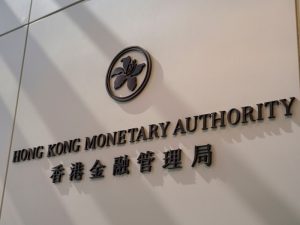Asian Economic Growth and Carbon Emissions Report
Thomas Lloyd, an internationally impact investment institution, releases a report on economic growth and carbon emissions of Asia. Through analyzing the changes in Asia’s economy and carbon emissions, it obtains the carbon cost of the current Asian economic development and makes suggestions for the emission reduction and net zero transition.
Thomas Lloyd believes that the total global carbon dioxide emissions have nearly doubled since 1980, and countries have generally agreed to reduce greenhouse gas emissions in the Paris Agreement. Although the growth rate of global carbon emissions is slowing down, the imbalance of carbon emissions makes some regions need to accelerate energy transformation to achieve the goal of net zero.
Economic Growth and Measurement of Carbon Emissions
After considering the imbalance between global economic growth and carbon emissions, the report uses the carbon emission cost per unit of GDP instead of absolute values.
In 1980, the global GDP was 11.42 trillion US dollars, the carbon dioxide emissions were 19.5 billion tons, and the carbon emission cost per unit GDP was 1.735 billion tons per trillion GDP. In 1990, this indicator had been reduced to 0.96 billion tons per trillion GDP, and in 2000 it reduced to 0.747 billion tons per trillion GDP. At present, the global average emission cost per unit GDP is 0.382 billion tons per trillion GDP.
Overall, the global economy has increased nearly 9 times since 1980, while the global population has increased by 75%, and the carbon emission cost per unit of GDP has decreased by 80%.

Economic Development and Carbon Emission in Asia
Since 1980, the global population has increased from 4.46 billion to 7.87 billion, of which two-thirds of the growth occurred in Asia. The population of Asia increased from 2.65 billion to 4.68 billion, accounting for 60% of the world’s total. The average life expectancy of the population in Asia has increased from 41 years in 1950 to 74 years, and has achieved intuitive economic development results.
At the same time, the carbon emission cost per unit of GDP in Asia is still higher than the global average, although it is also gradually decreasing. At present, the carbon emissions of European and American countries have decreased significantly. For example, the United Kingdom has reached the lowest carbon emissions level in 60 years, and the United States has reached the lowest carbon emissions level in 35 years, but the situation in Asian countries is still the opposite.
In 1980, the global carbon emissions were 19.5 billion tons, of which eight major Asian countries accounted for about 10%. At present, the carbon emissions of these countries have accounted for 45% of the global and are higher than the global carbon emission cost per unit of GDP (0.382 billion tons per trillion US dollars of GDP) and the average emission cost of European countries (0.132 billion tons per trillion GDP). In terms of specific values, the carbon emission cost per unit GDP of Asian countries is between 0.5 and 0.85 billion tons per trillion GDP.
Suggestions for Energy Transition in Asia
Although the population growth and urbanization process in Asia are still promoting the increase of carbon emissions, reducing carbon footprint has become the consensus of Asian countries. According to the report, Asian energy transformation can start from the following aspects:
Investment in climate infrastructure and renewable energy projects. The carbon emissions in Asia are higher than the global average, which is directly related to the development of manufacturing industry, but also subject to outdated infrastructure and energy projects. Increasing investment in climate infrastructure and developing renewable energy can provide the basis for decarbonization for emerging market economies;
Strengthen technological innovation to improve energy efficiency. Europe and the United States have reduced the absolute level of carbon emissions through manufacturing outsourcing, but it is still unavoidable in the production process in Asia. Asia can strengthen technological innovation and improve energy efficiency, thus reducing the carbon emission cost per unit of GDP;
Reference:





